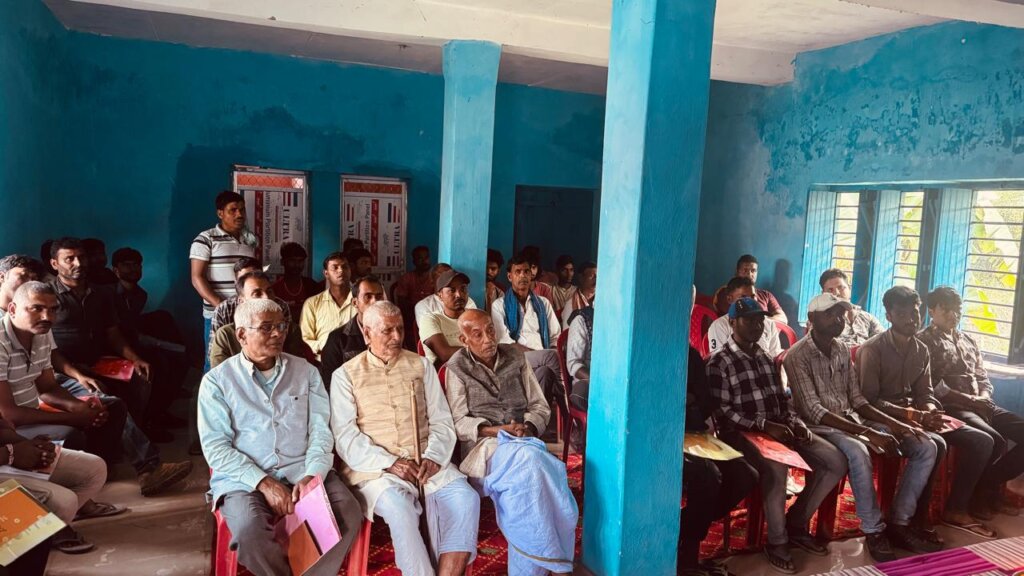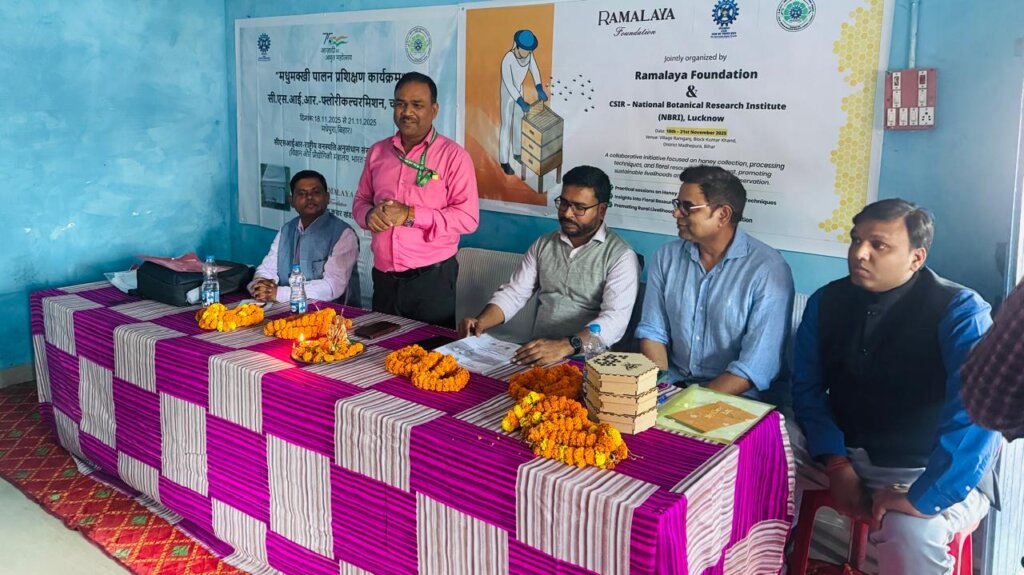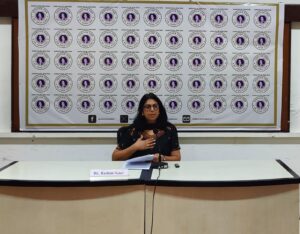CSIR–NBRI and Ramalaya Foundation launch Bihar’s first scientific beekeeping and biodiversity restoration initiative in Ramganj, aiming to boost farmer income and strengthen the region’s ecological resilience.
Madhepura, Bihar | 18 November 2025
In a major stride toward sustainable agriculture and rural ecological development, Bihar has launched the state’s first Scientific Honey Production and Biodiversity Restoration Project in Ramganj village, Madhepura. The pioneering initiative is part of the CSIR Floriculture Mission – Phase II, led by Mission Director Dr. Ajit Kumar Shasany, and jointly implemented by the CSIR–National Botanical Research Institute (NBRI), Lucknow, in collaboration with the Ramalaya Foundation, founded by Shri Prashant Kumar.
The launch ceremony witnessed the participation of representatives from the District Administration, Block Development Department, Forest Department, and experts from the Krishi Vigyan Kendra (KVK). Additional technical support was provided by Mr. Manoj Kumar, Block Project Manager, Jeevika, Kumarkhand, and Mr. Nimit Singh, Founder of Madhumakhi Wala Industry, Lucknow. Their involvement underscored the unified effort of multiple agencies working toward enhancing farmer livelihoods while restoring the ecological balance of the region.
District Magistrate Shri Taranjot Singh, IAS, praised the project for its long-term social and environmental impact. He assured complete administrative cooperation and expressed his intention to personally visit the project site, interact with scientists and farmers, and oversee the progress of this transformative rural initiative.

Speaking at the event, Shri Prashant Kumar, Founder of Ramalaya Foundation, emphasized the project’s vision:
“Our aim is to build a self-sustaining model that strengthens biodiversity and significantly uplifts farmer incomes. By integrating scientific beekeeping with ecological restoration, we hope to empower local communities while protecting the environment. We are grateful to CSIR–NBRI for their valuable guidance and partnership.”
The scientific team from CSIR–NBRI, including Dr. Sushil Kumar and Dr. Bikarma Singh, Principal Scientists, along with Project Associate Prabhat Maurya, will lead training sessions and monitor field implementation.
According to Dr. Sushil Kumar, Ramganj has exceptional ecological potential for scientific honey production, and introducing advanced techniques will help increase farmer earnings while safeguarding native biodiversity.
Dr. Bikarma Singh added that scientific beekeeping not only boosts honey yield but also strengthens the entire ecosystem. Their aim is to equip farmers with modern beekeeping and ecological restoration practices to ensure long-term sustainability.
Under the project, a dedicated biodiversity zone spanning a 2 km radius will be developed, featuring 200 scientifically managed beehive boxes. The initiative aims to raise farmer incomes by 30–50%, connect over 200 new farmers within the next three years, expand to multiple blocks across Madhepura, and scale plantation activities across 20–30 hectares.
This landmark project is expected to create a robust ecological framework for Madhepura while paving the way for sustainable livelihoods and climate-resilient rural development.






